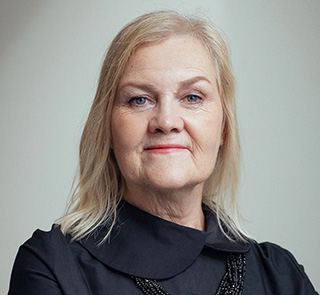
Professor Lesley Warren is an internationally recognized, innovative researcher delivering new water management and treatment technologies for the mining sector through novel discoveries of the mining microbiome. She moved to the University of Toronto to (UofT) take up the Claudette Mackay Lassonde Chair in Mineral Engineering in 2016 in the department of civil and mineral engineering, and became the first female director for the Lassonde Institute of Mining in 2018. She founded the Mining Futures Initiative at UofT in 2023. She has established a pioneering, multidisciplinary research program investigating the roles of bacteria in key processes affecting mining and resource sector waste environments that pave the way for smart, nature-based technologies to improve environmental outcomes.
Distinguished Lecturer 2025-26
Lecture Abstracts
Nature-based solutions: Addressing thiosalts management and treatment inefficiencies
Sulfur compounds capable of oxidation, e.g., thiosalts (SnOx2-), are common by-product of operations processing sulfide minerals. They remain a global mining environmental challenge linked to impacts such as ARD and toxicity failures; indicating biological knowledge gaps contribute to on-going sulfur risks. Case study results of a 5-year sulfur biogeochemical investigation of four Canadian base metal mine tailings impoundment (TI) and receiving environment (RE) waters, reveal extensive microbial sulfur cycling directly linked to acidity and reactive sulfur outcomes. Identified conditions and controls on these microbial sulfur oxidation reactions are not captured in current model and management strategies, underscoring the need for biogeochemical investigation to improve sulfur related RE outcomes. Attendees will gain a biologically informed perspective in this lecture that will demonstrate how such microbially integrated investigation addresses long-standing critical sulfur knowledge gaps, and paves the way for development of smart, nature-based sulfur solutions.
Designing for impact: Building success through nature-based solutions
(Joint lecture with Nadia Mykytczuk )*
Increasing uncertainties underscore the need for a flexible playbook to enable adaption of operations to manage ESG outcomes and improve efficiencies. Off the shelf solutions are increasingly failing to meet current, and more worryingly, escalating future predicted needs. Transformative solutions that address environmental risks will be key to stakeholder confidence, social licence and regulatory compliance. Nature based microbial opportunities to de-risk, improve performance and resilience are myriad; however, to date, remain limited in their development and application. In part this reflects the limited number of disruptive researchers with the systems-based design expertise required to drive knowledge outcomes that can address pinch-points, uncertainties or opportunities such as mine waste valorization. As leaders in this space, this masterclass will provide attendees with an understanding of when and how microbes can be central to addressing persistent mine waste and water challenges—and how fit-for-purpose research design enables lasting impact across the mine life cycle through real-world examples and pilot project insights. Development of transformative microbial tools can serve as early diagnostic indicators, enable biogeochemical modelling, and support cost-effective compliance with evolving regulatory frameworks.
*Note: The joint lecture is offered only in certain regions. For more information, please contact: professionaldevelopment@cim.org
 - dev.png)

